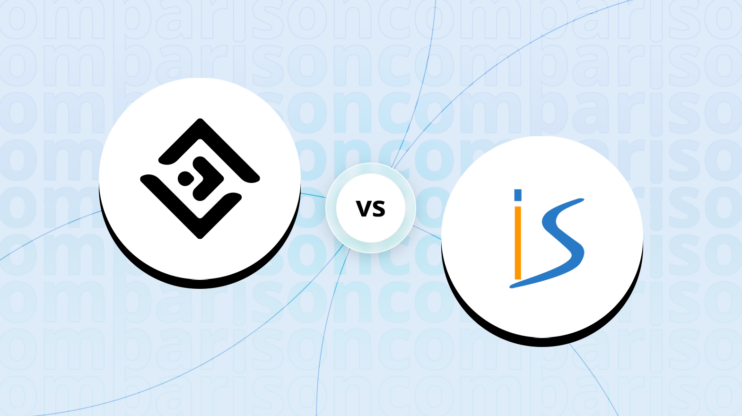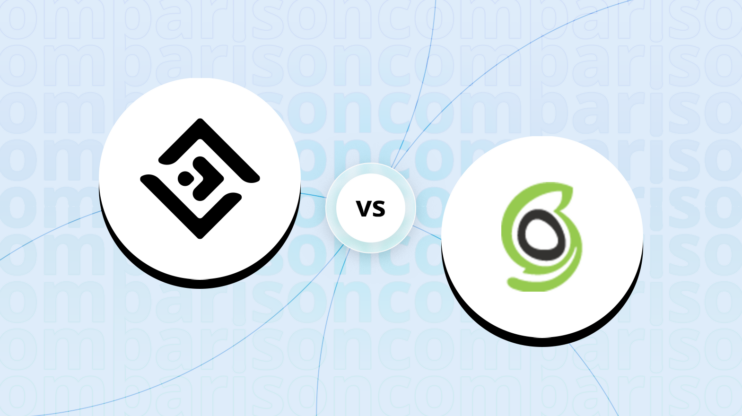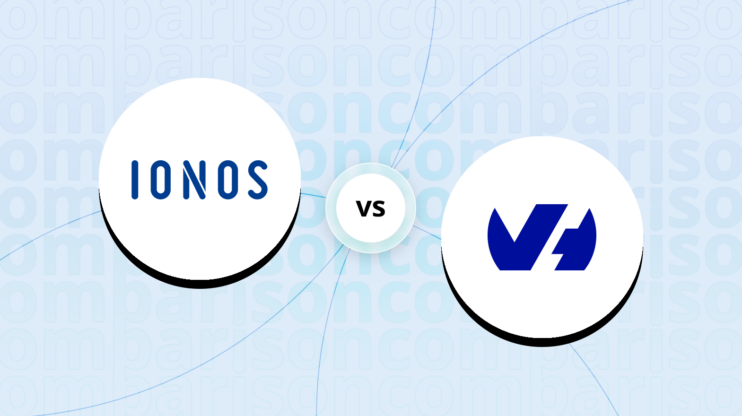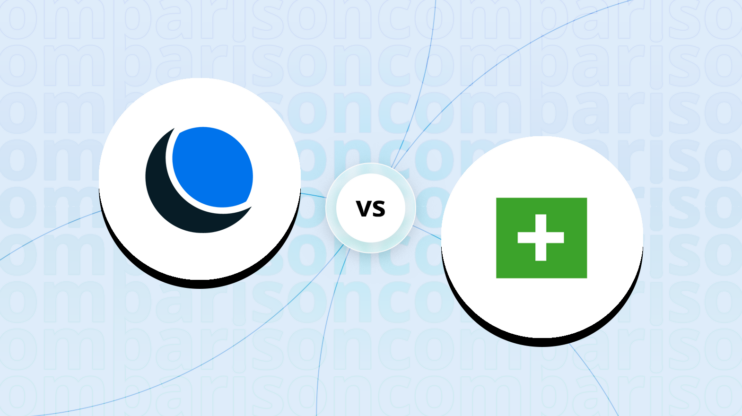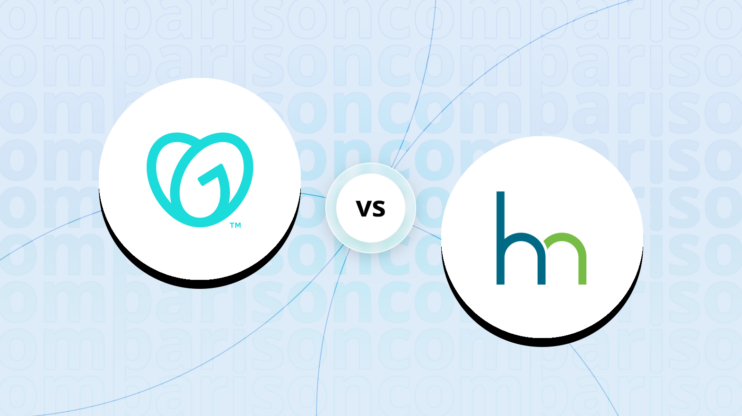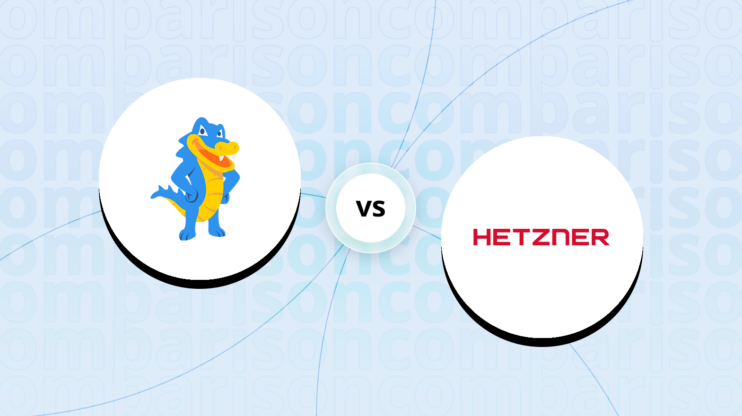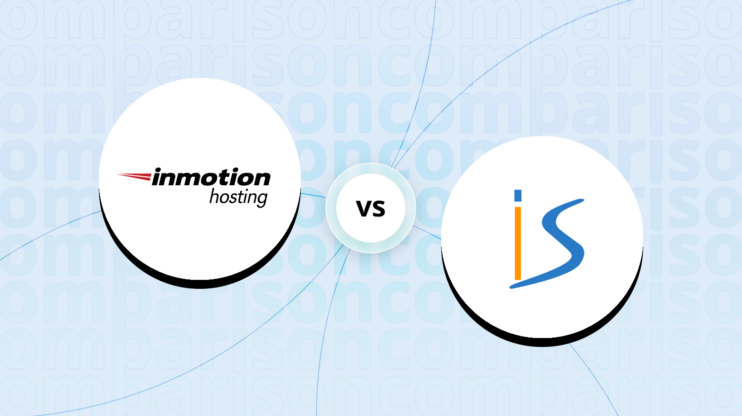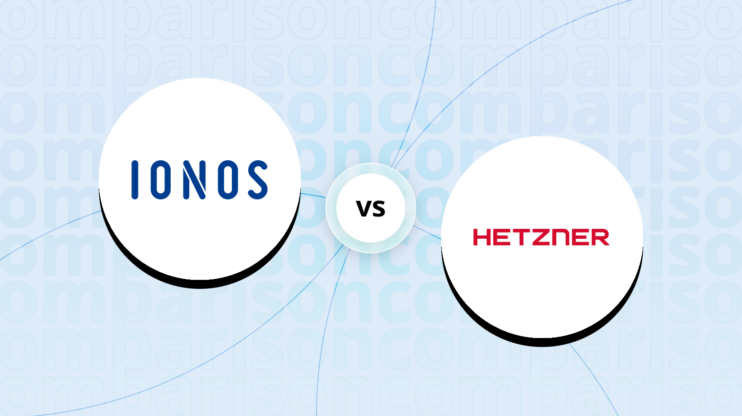Final verdict
Looking over SiteGround vs. InterServer, it’s clear why both hosts are so popular. They have both hosted millions of
websites that run on WordPress for decades, building up a loyal customer base.
-
InterServer (Overall grade: 8.1)
offers competitive pricing and a range of hosting types including VPS and dedicated hosting, which SiteGround lacks. It guarantees 99.9% uptime supported by Cloudflare’s global network and route optimization for decent global loading speeds. Users appreciate unlimited storage and data transfer, making it suitable for high-traffic and multimedia websites. Security measures like InterShield and end-to-end email encryption are robust. Nonetheless, it falls short in response times and lacks the advanced speed optimizations and setup tools that SiteGround provides. Customer feedback highlights affordable pricing and straightforward features but points to inconsistent server speed and occasional downtime as areas of concern.
SiteGround (Overall grade: 8.8)
presents itself as a superior option with its 99.9% uptime guarantee, achieving practically flawless performance with only minimal outages over extensive monitoring. Its integration with premium Google Cloud infrastructure, SSD persistent storage, and custom PHP setup ensures higher speeds and reliability. Especially noted for its WordPress and ecommerce hosting, SiteGround offers specialized tools like staging, caching, and autobackups along with excellent support resources. The platform also excels in security with features like AI Anti-Bot, WAF, and automated backups. However, some users may find the renewal pricing steep, and occasional navigational issues in the support section could pose minor challenges.
 Overall grade:8.8 |
 Overall grade:8.1 |
|
|---|---|---|
| Uptime and Availability | 9.4 | 8.7 |
| Hosting Performance | 8.8 | 8.2 |
| Hosting Security | 8.6 | 8.3 |
| Price | 8.4 | 8.1 |
| Hosting Features | 8.5 | 6.2 |
| Ease Of Setup | 8.9 | 8.7 |
| User Management | 8.4 | 7.4 |
| Customer Support | 9.2 | 9.0 |
| User feedback | 4.3/5 | 4/5 |
Hosting types offered
Both platforms provide a variety of hosting types, each designed to meet the different needs of users.
 |
 |
|
|---|---|---|
| Shared hosting | ||
| Cloud hosting | ||
| WordPress hosting | ||
| Ecommerce hosting | ||
| VPS hosting | ||
| Dedicated hosting |
Although both offer a variety of hosting plans tailored to different needs, in
certain cases, one platform may prove to be more suitable.
Detailed comparison
Uptime and availability
Evaluates the average uptime statistics, uptime guarantee and overall availability of the hosting
provider
Score Components:
- Uptime percentage (30%): evaluates the uptime statistics in given period of time
- Uptime guarantee (20%): Assesses if the platform offers an uptime guarantee and
whether the actual uptime matches the promised guarantee. - General performance (25%): Evaluates how fast is the average response time and overall
it’s stability. - Responsiveness (10%): Adaptability to different devices and screen sizes.
- Availability (25%): Reflects the total downtime and number of outages.
 9.4
9.4
 8.7
8.7
🏆 Winner SiteGround: Delivers superior uptime and response times, ensuring high reliability and performance.
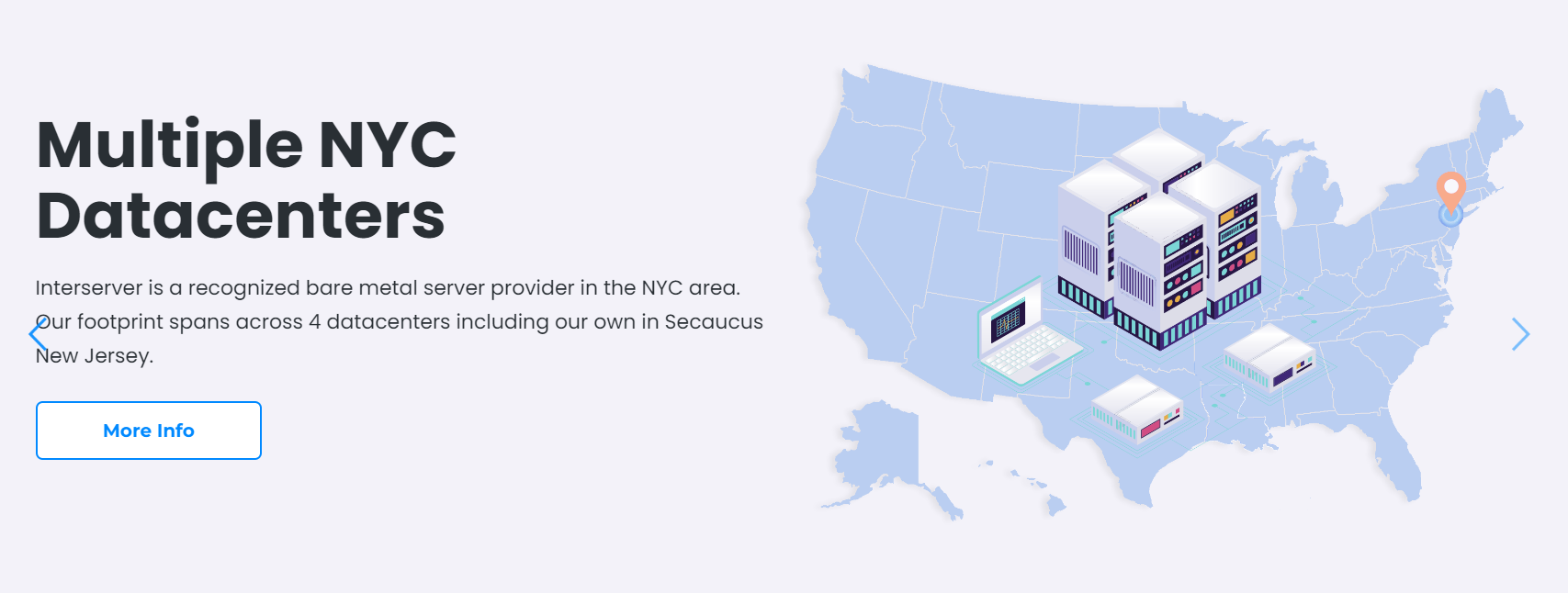
SiteGround offers a 99.9% uptime guarantee with actual performance surpassing this metric. Observed uptime over nearly two months showed only three outages totaling seven minutes. With an average response time of 0.207 seconds, SiteGround outperformed competitors. Furthermore, stress tests simulating 50 virtual users show no performance issues, underscoring its reliability.

InterServer guarantees 99.9% uptime, leveraging Cloudflare’s global network. Long-term monitoring indicates an uptime of 99.99%, though server response time averages 662ms. InterServer employs route optimization and proprietary caching to ensure good loading speeds globally. It also offers strong security measures like InterShield Security and email delivery guarantees.
SiteGround excels in uptime and speed, making it the clear winner. InterServer provides reliable service but falls short in response times and overall performance compared to SiteGround’s superior metrics.
Hosting performance
Score Components:
- Hosting speed (30%): This includes SSD quality, Load times, PageSpeed score ranges,
additional information on website speed, built-in plugins for performance enhancement, available caching
methods, and CPU/RAM options - CDN (20%): Considers whether CDN is available or not, whether it’s free or paid, and
the quality of the CDN service - Available data centers (30%): Evaluates the number of data centers and their locations
globally. - Scalibility (20%): Looks at whether elastic scaling is available, the process required
to scale (manual upgrade vs. automatic scaling), the presence of dedicated servers, and the costs
associated with scaling.
 8.8
8.8
 8.2
8.2
🏆 Winner
SiteGround: Offers top-notch performance with advanced speed technologies and excellent support.
When comparing the general performance of SiteGround and InterServer, both are strong contenders, but SiteGround stands out due to its integration with premium Google Cloud infrastructure, SSD persistent storage, and a custom PHP setup that reduces TTFB. Additionally, SiteGround offers static and dynamic caching for higher speeds. Both providers have free CDN services; however, SiteGround’s in-house CDN boasts 170+ edge locations for extensive reach. Data centers are ample for both, but SiteGround is located in top-tier locations for optimal reliability and speed.
Website Speed
SiteGround’s website speed gains a significant edge with its custom server setup and a preinstalled Speed Optimizer plugin that boosts page load times by 30%. With features like NGINX Direct Delivery and SuperCacher service, site load times are further optimized. InterServer offers solid speed optimization with SSD caching servers and a 10GB Cisco network, but SiteGround’s use of cutting-edge speed technologies ensures it delivers higher speed consistency and performance.
Scalability
Scalability at SiteGround is straightforward, as users can upgrade their plans through tiers such as StartUp, GrowBig, GoGeek, and their robust cloud hosting options, starting at $100 per month. Whether you need shared hosting or are ready to scale up to dedicated cloud resources, upgrading is seamless. InterServer allows easy scaling to VPS or dedicated servers with minimal downtime, offering flexibility without specific cost details. Both address scalability well, but SiteGround’s tiered plans and established cloud options offer a more transparent approach.
Hosting security
and regulatory requirements
Score Components:
- Technical security measures (40%): This includes encryption, firewalls, DDoS
protection, secure configurations, server monitoring, access control and availability of security addons
(e.g Sitelock security). - Operational security measures (30%): Encompasses data privacy, backups and data
redundancy. - Compliance and certifications (20%): Adherence to legal and regulatory requirements
(e.g., GDPR, HIPAA) and possession of certifications (e.g., ISO 27001, SOC 2). - Business and reliability (10%): Factors in the provider’s reputation, uptime
guarantees, and customer support.
 8.6
8.6
 8.3
8.3
🏆 Winner SiteGround: Provides a holistic suite of security features and automated tools making it a highly secure choice for hosting.
Both SiteGround and InterServer, have notable differences in their approaches to technical and operational
security, as well as in their compliance with regulations.
Technical security measures:
SiteGround implements a comprehensive security setup, including a 24/7 system administration, a custom Smart Web Application Firewall (WAF), distributed and daily backups, and a unique AI Anti-Bot system to block millions of threats daily. They also offer free SSL certificates and automatic WordPress and WooCommerce updates to maintain system security. InterServer also provides robust security with features like a self-developed InterShield security system, end-to-end encrypted email, brute-force attack prevention, and spam/virus filtering. Additionally, InterServer features free SSL certificates, multiple PHP version support, and a caching mechanism for optimized performance.
Operational security measures:
SiteGround’s operational security includes multi-layered security in Google Cloud data centers, custom security solutions for application-level protection, and automatic daily backups with easy restore options. InterServer also prioritizes operational security: their data centers are secured with physical barriers and guarded access, and feature redundancy in power, cooling, and network components for 100% uptime. Additionally, InterServer safeguards email through automatic encryption and anonymous email options, ensuring user privacy.
Compliance and certifications:
SiteGround does not offer PCI compliant servers but suggests alignment with secure practices through its security measures. GDPR compliance specifics are not detailed. InterServer emphasizes privacy and suggests GDPR compliance with its privacy-focused services but also provides no specific PCI compliance details.
 |
 |
|
|---|---|---|
SSL certificate |
Free |
Free |
Additional security features |
AI Anti-Bot, WAF, Multi-Layered Security |
InterShield, End-to-End Encryption, Brute-Force Protection |
PHP versions |
Not specified |
Up to PHP 8.3 |
GDPR compliance |
Not specified |
Suggested |
HIPAA compliance |
Not specified |
Not specified |
PCI compliance |
Not specified |
Not specified |
Hosting features
Score Components:
- Domains (20%): Assesses the availability of a free domain, domain purchase options, and
pricing - Email (15%): Considers if the provider offers full email hosting, or is reselling
third-party service, and if the email is only transactional or not - Website builder (15%): Checks if website builder is available, and it’s user
friendliness and overall the level of customization allowed. - Staging environment (20%): Determines if a staging environment is available, allowing
for testing changes before going live. - FTP & SFTP accounts (10%): Evaluates if and how easily users can access FTP and
SFTP accounts - Git and SSH access (20%): Assess whether Git is integrated into the hosting service and
if SSH access is provided
 8.5
8.5
 6.2
6.2
🏆 Winner
SiteGround: Superior WordPress optimization and extensive features
SiteGround and InterServer both offer their unique set of features catering to different user needs. SiteGround stands out with its managed WordPress hosting, including highlights like WP-CLI and SSH, on-demand backup copies, and a staging environment. The user-friendly interface coupled with free WordPress and email migrator plugins provides a seamless experience for WordPress users. Enhancements like super-fast PHP and SuperCacher technology make it appealing for those prioritizing speed and performance. On top of all, SiteGround’s eco-conscious approach with a 100% renewable energy match can be a decisive factor for environmentally mindful users.
InterServer comes with its distinct advantages as well, including unlimited storage space and data transfer, which can be crucial for websites with significant traffic and content demands. Its ultra-fast web server and RAID-10 storage ensure robust speed and reliability. A key feature is the availability of Cloudflare CDN for free, enhancing the delivery of web content. Though lacking the on-demand backup or WordPress-specific optimizations of SiteGround, InterServer does offer essential services such as SSD caching servers and a 10GB Cisco network, making it a viable option for those seeking straightforward hosting solutions.
 |
 |
|
|---|---|---|
Free domain |
No |
No |
Free SSL |
Yes |
Yes |
Email hosting |
Yes |
Yes |
Website builder |
Yes |
No |
Staging environment |
Yes |
No |
FTP & SFTP account |
Yes |
Yes |
Git and SSH access |
Yes |
No |
Free backup |
Yes |
Yes |
Money back guarantee |
Yes, 30 days |
No, mentioned |
a location.
As a result in rare cases the features mentioned here can differ from the ones you see on their websites.
Both providers support a range of users from beginners to experts with user-friendly website builders and WordPress staging areas. However, in terms of developer tools, both SiteGround and InterServer offer robust options including SSH access, support for multiple programming languages, and Git for version control, thus appealing to developers looking for advanced capabilities.
Email services:
Email services at SiteGround provide comprehensive email hosting, including free email accounts that cater to personalized email management and campaigns. Such services are suitable for businesses managing multiple email accounts under their domain. InterServer also offers email hosting; however, it doesn’t mention specific features for transactional email capabilities or integration with third-party services like Google Workspace or Outlook. This makes SiteGround the more versatile choice for those needing robust email solutions for business communications.
Price
Score Components:
- Plan value (40%): What each pricing tier offers.
- Transparency and clarity (30%): Clearness of pricing structures.
- Flexibility of plans (20%): Range of options to suit different budgets.
- Hidden costs (10%): Additional expenses not included in the plan.
 8.4
8.4
 8.1
8.1
🏆 Winner
SiteGround: Offering a comprehensive array of features across its plans, SiteGround stands out with its balanced blend of affordability and functionality.
Evaluating the pricing of plans among various hosting providers can be complex due to their differing pricing and renewal strategies. Additionally, certain plans require annual commitments, which adds to the difficulty of making comparisons. The prices listed are based on monthly commitments; plans requiring annual commitments are indicated. Additionally, although some providers offer identical plans for WordPress and shared hosting, we have created separate tables for each to enhance clarity.
Comparing the pricing plans of SiteGround and InterServer, SiteGround offers a range of options for shared, WordPress, and cloud hosting. It provides discounted rates with robust features across all plans. On the other hand, InterServer boasts competitive prices, particularly in the shared and WordPress hosting categories, offering unlimited resources. However, SiteGround’s plans include more specialized features like enhanced security and 30% faster PHP options in higher tiers, making it a compelling choice for advanced users. InterServer’s VPS and storage hosting plans stand out for their scalability and affordability.
 |
 |
|---|---|
|
StartUp Plan $17.99
1 website, 10 GB storage, unmetered traffic, managed WordPress, free SSL, daily backup, free email. Value for price:8.5
|
1 Core $6.00
1 website, 30GB SSD storage, 2TB transfer, free migration, easy control panel. Value for price:8.0
|
|
GrowBig Plan $29.99
Unlimited websites, 20 GB storage, unmetered traffic, managed WordPress, staging, 30% faster PHP, free SSL. Value for price:8.7
|
2 Cores $12.00
2 websites, 60GB SSD storage, 4TB transfer, free migration, easy control panel. Value for price:8.1
|
|
GoGeek Plan $44.99
Unlimited websites, 40 GB storage, unmetered traffic, managed WordPress, staging+Git, free private DNS, priority support. Value for price:8.9
|
3 Cores $18.00
3 websites, 90GB SSD storage, 6TB transfer, free migration, easy control panel. Value for price:8.3
|
 |
 |
|---|---|
|
StartUp Plan $17.99
1 website, 10 GB storage, unmetered traffic, free SSL, daily backup, free email. Value for price:8.5
|
Standard Web Hosting $2.50
Unlimited websites, unlimited storage, unlimited transfer, free SSL, 24/7 support. Value for price:8.0
|
|
GrowBig Plan $29.99
Unlimited websites, 20 GB storage, unmetered traffic, free SSL, daily backup, on-demand backup copies, free email. Value for price:8.7
|
N/A |
|
GoGeek Plan $44.99
Unlimited websites, 40 GB storage, unmetered traffic, free SSL, daily backup, priority support, white-label clients. Value for price:8.9
|
N/A |
 |
 |
|---|---|
|
Jump Start Plan $100.00
4 CPU Cores, 8GB memory, 40GB SSD space, 5TB data transfer. Value for price:8.0
|
VPS Special $6.00
2GB RAM, 30GB SSD storage, multiple OS, instant provisioning, free migration. Value for price:8.1
|
|
Business Plan $200.00
8 CPU Cores, 12GB memory, 80GB SSD space, 5TB data transfer. Value for price:8.2
|
N/A |
|
Business Plus Plan $300.00
12 CPU Cores, 16GB memory, 120GB SSD space, 5TB data transfer. Value for price:8.4
|
N/A |
|
Super Power Plan $400.00
16 CPU Cores, 20GB memory, 160GB SSD space, 5TB data transfer. Value for price:8.6
|
N/A |
Enterprise plans
For enterprises, SiteGround’s premium GoGeek Plan at $44.99/month offers extensive features, including 40 GB web space, staging + Git, and priority support, catering to high-traffic demands with 400,000 visits monthly. InterServer’s Reseller Hosting plans, starting from $19.95/month for 80GB to $69.95/month for 280GB disk space, also provide unlimited accounts and client management with a DirectAdmin control panel, representing a durable solution for large-scale operations. While SiteGround excels in feature richness, InterServer provides scalable storage solutions tailored for extensive enterprise needs.
Ease of setup
platform.
Score Components:
- Site migration (25%): Assesses whether the provider offers tools for site migration,
either automated or manual, and whether these services are free or require a fee. - Admin panel usability (35%): Evaluates the type of admin panel provided, such as the
standard cPanel or a custom solution, focusing on its accessibility and user-friendliness for both
technical and non-technical users. - Setup features (20%): Examines the availability and ease of use of various setup
features, including FTP accounts, file managers, email account setup, PHPMyAdmin, and easy CDN
configuration. - Help center quality (20%): Measures the quality and accessibility of the provider’s
help center resources, including articles and tutorials.
 8.9
8.9
 8.7
8.7
🏆 Winner SiteGround: SiteGround offers a streamlined setup process with automated tools and excellent support resources.
SiteGround uses an Automated Site Setup Wizard, which makes it easy for users to launch websites using popular applications such as WordPress, Magento, and over 20 others. It also features a WordPress Starter Plugin that helps users add a professional theme and necessary plugins within minutes. On the other hand, InterServer provides a simple-to-use control panel, like cPanel and DirectAdmin, which allows users to manage their websites via a web browser. Both platforms are user-friendly, but SiteGround’s additional automated setup features provide an edge for those looking to get started quickly without technical knowledge, making it more accessible to novice users.
InterServer’s control panels are highly appreciated, particularly for technical-minded users who enjoy a traditional cPanel interface and a multitude of one-click script installations. Meanwhile, SiteGround complements its Automated Site Setup Wizard with a one-click staging tool available in higher-tier plans, allowing users to test changes before pushing them live. Overall, SiteGround’s approach with automated tools and a starter plugin makes it easier for both non-technical and technical users, whereas InterServer’s control panels cater more towards users comfortable with traditional tools.
Both SiteGround and InterServer offer migration tools to move websites easily. SiteGround provides a free WordPress Migrator Plugin and professional expert migrations starting at $30.00 per site, covering all files and databases. InterServer, while offering a free migration service for standard shared hosting, requires customers to have a full cPanel backup ready and an empty InterServer account to complete the migration. SiteGround’s combination of automated and professional migration services provides a broader range of hassle-free options.
When it comes to help center resources, SiteGround has an extensive knowledge base with frequently asked questions, how-to guides, and troubleshooting instructions. Pinned help on every page and 24/7 live support, including chat and phone support with response times under 15 minutes for tickets, ensure higher accessibility. InterServer offers 24/7 support via phone, live chat, and a ticket system, along with helpful articles and comprehensive tools. However, SiteGround’s more detailed help center and faster resolution time give it an advantage.
User management
accessibility.
Score Components:
- Role customization (40%): Flexibility in creating and defining user roles and
permissions. - Ease of management (30%): User interface and tools for managing users.
- Access control (20%): Effectiveness of access control measures for different user
levels. - Scalability (10%): Ability to manage a growing number of users efficiently.
 8.4
8.4
 7.4
7.4
🏆 Winner
SiteGround: Superior user management capabilities with versatile tools and features.
When it comes to managing user roles, permissions, and accessibility, SiteGround stands out with its extensive and clear user management functionalities. SiteGround allows for the creation of custom roles, making it easy to define specific permissions for different types of users. This flexibility extends to adding collaborators and white-label clients, ensuring that teams and clients can independently access the Site Tools without seeing the SiteGround brand. InterServer, relying primarily on cPanel, Plesk, and DirectAdmin, offers user management features but does not explicitly detail the flexibility and range found in SiteGround. While the control panels do allow for some role and permission management, they don’t provide the same level of integrated customization that SiteGround offers, limiting its ability to tailor user access closely to individual needs.
The user interfaces and tools for managing users are quite different between the two providers. SiteGround provides a dedicated Manage Users section within the Client Area, making it straightforward to add users, assign roles, and manage permissions. The interface is intuitive, with clear step-by-step instructions for creating and assigning roles. InterServer, on the other hand, uses third-party control panels that do offer user management functionalities, but these tools are less integrated and may vary in user experience depending on the control panel in use. This makes navigating and managing users less seamless compared to SiteGround’s cohesive platform.
Effectiveness in access control and handling a growing user base reveals another advantage for SiteGround. Its structured approach to user roles, combined with the white-label feature for clients on GoGeek and Cloud plans, ensures robust access management. SiteGround’s platform supports efficient scaling as more users or clients are added. InterServer’s reliance on control panels like cPanel and DirectAdmin offers basic access control measures, but may not handle scaling with the same efficiency due to less integrated user management features. This can pose challenges for growing businesses needing a streamlined and scalable user access system.
SiteGround user roles table:
| Role | Description | Access highlights |
|---|---|---|
| Collaborator | A team member working on specific sites. | Access to Site Tools and support for specific sites. |
| White-label Client | Client with access to Site Tools without seeing SiteGround’s branding. | Custom tools as defined, access through white-label URL. |
Customer support
hosting provider.
Score Components:
- Support communication channels (30%): Measures the variety of customer support types
provided (live chat, chatbot, email, phone, etc.) - Availability (20%): Assesses the availability hours for each channel, including 24/7
support options. - Technical support quality (30%): Assesses whether the provider offers comprehensive
technical support, including hardware upgrades (e.g., HDD to SSD), software installations, and web
server configuration changes. - Enterprise support (20%): Checks if there are dedicated or priority support services
for enterprise-level customers.
 9.2
9.2
 9.0
9.0
🏆 Winner SiteGround: Offering 24/7 support through multiple channels, SiteGround provides quick and efficient service with a focus on client empowerment and high satisfaction.
 |
 |
|
|---|---|---|
Phone support |
||
Live chat support |
||
Chatbot |
||
Email/ticket support |
||
Enterprise support (dedicated agent, priority support) |
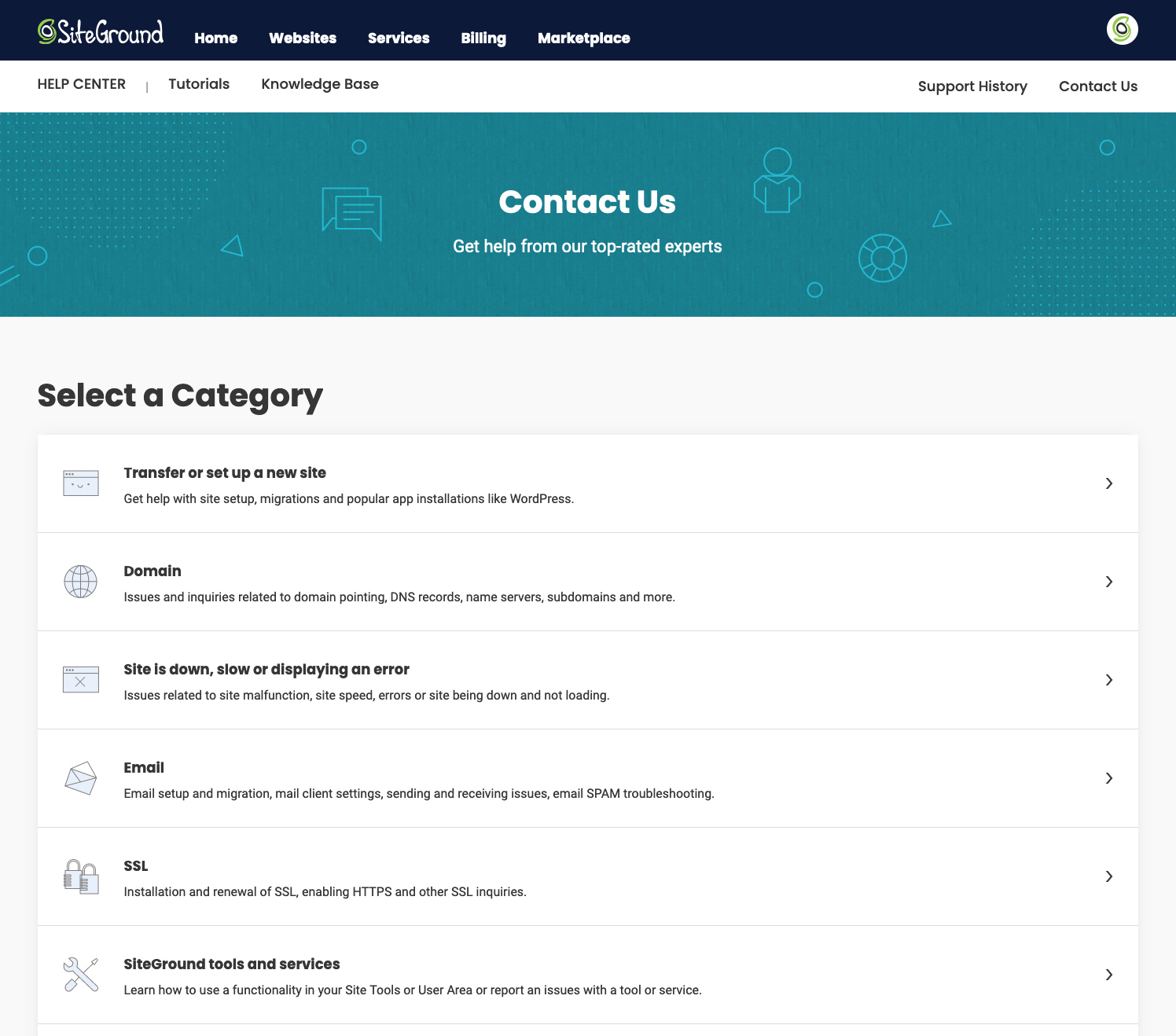
SiteGround and InterServer both offer 24/7 customer support through phone, live chat, and email/ticket systems. SiteGround stands out with its chatbot and priority support for GoGeek plan members, while InterServer relies on a dedicated support team and features like proactive backups and free migration services. Both provide extensive knowledge bases and easy-to-use control panels.
SiteGround’s rapid response times and highly trained customer care team result in a 98% satisfaction rate. InterServer impresses with its proactive backups, free migrations, and quick problem resolution. Both aim to keep their customers satisfied, but SiteGround’s wider range of support types and priority options makes it a more comprehensive choice.
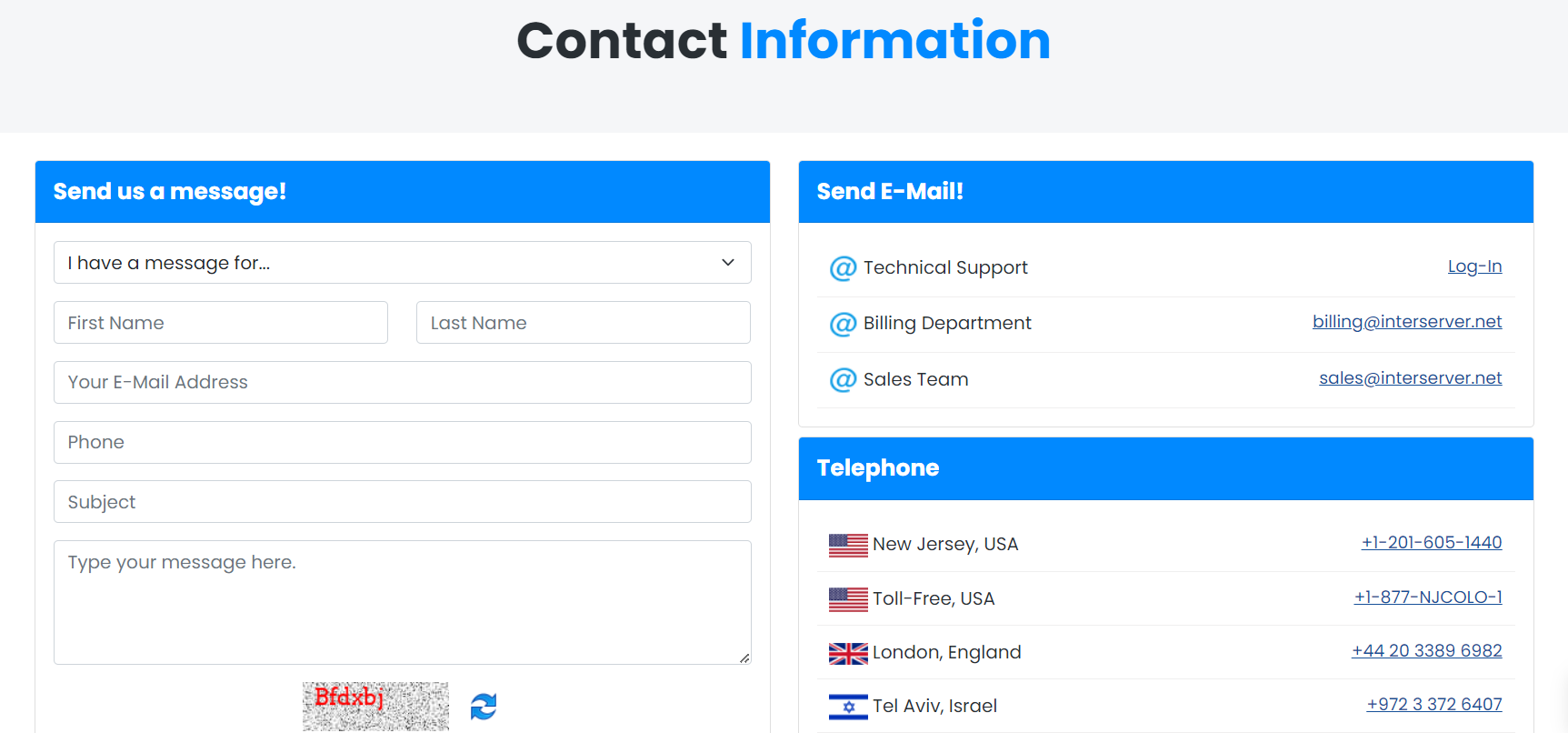
User feedback
SiteGround garners consistently high praise for its exceptional customer support and user-friendly tools, frequently being described as reliable and straightforward to use. Users commend the fast and knowledgeable technical assistance, which is available through various channels like chat and phone, often highlighting the effectiveness and patience of support representatives. Despite these positive aspects, some users find renewal pricing relatively expensive and note that navigating to the support section can be cumbersome. Issues with specific features, such as webmail interface and certain plugins, are also mentioned, but overall, SiteGround is recommended for its strong support and ease of use, especially for beginners and small businesses.
User feedback on the hosting provider paints a mixed picture. Many users commend the provider for its affordable, straightforward pricing and extensive features like unlimited storage and bandwidth, free SSL certificates, and a user-friendly control panel. The customer support, while generally prompt and effective, has garnered both praise and criticism, especially due to the lack of a dedicated phone support line and sometimes long live chat wait times. However, performance issues such as inconsistent server speed, downtime, and occasional loss of data have been frequent points of frustration for users.
FAQ
Which platform is better suited for hosting WordPress websites?
SiteGround is better suited for hosting WordPress websites due to its managed WordPress hosting that includes specialized tools like staging, caching, and autobackups. SiteGround also offers a user-friendly interface and plugins that streamline the setup process, making it more attractive for WordPress users compared to InterServer.
Which hosting service offers better security features?
SiteGround offers better security features with its comprehensive setup that includes AI Anti-Bot, a Smart Web Application Firewall (WAF), automated daily backups, and 24/7 monitoring. InterServer also has robust security measures like InterShield and end-to-end encryption, but SiteGround’s advanced features and dedicated security tools give it an edge.
What are the major differences in pricing and value between SiteGround and InterServer?
SiteGround offers a range of pricing plans that include advanced features and optimized performance, but its renewal prices are higher. InterServer is more affordable, especially for plans with unlimited resources, making it a good choice for budget-conscious users. However, SiteGround’s specialized features and superior performance metrics add more value, particularly for advanced users.
Which platform offers better customer support?
SiteGround offers better customer support with 24/7 availability through multiple channels, including phone, live chat, and a chatbot. SiteGround’s support team is highly trained and known for quick response times. InterServer also provides 24/7 support through similar channels but lacks the chatbot and priority support options found in SiteGround.
Which hosting service offers more scalability options for growing websites?
SiteGround offers more straightforward scalability options with its tiered plans and robust cloud hosting options starting at $100 per month. Users can easily upgrade through tiers like StartUp, GrowBig, and GoGeek. InterServer provides flexible scalability with VPS and dedicated server options, but SiteGround’s transparent tiers and established plans make scaling easier for users.
The making of this blog
We followed a clear, step-by-step process to write and research this article.









